Opinion
Social Media providers and Nigerian Content creators
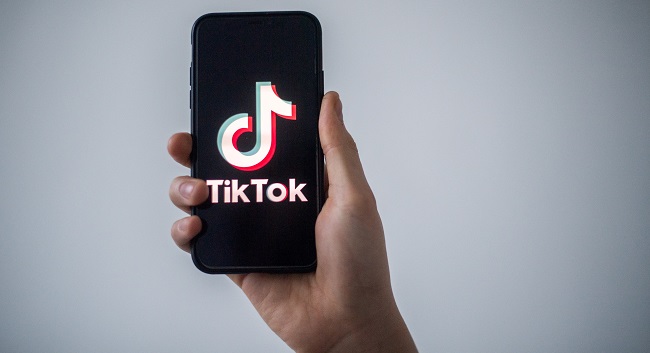
By Sonny Aragba-Akpore
On Monday September 16,2024,ByteDance and it’s short video platform,Tik Tok appeared at a crowded court in Washington DC,the United States of America (USA) before a panel of three judges to appeal against a law that is likely to ban the company from doing business in the USA by January 2025 if it does not divest its operations.
Although,this legal tussle is ongoing,Nigerian content creators appear to be the first victims of this long drawn battle between Tik Tok and the American government.
While the content creators wonder what becomes of their trade,Facebook and Instagram are making things more difficult for them.
Tik Tok ,Facebook and Instagram may have strong reasons for their actions but not as much as we know.
Meta Group,owners of Facebook,Instagram and WhatsApp last week deleted over 1,600 users in Nigeria for alleged scamming activities.
The deleted 1,600 Facebook groups are allegedly linked to Yahoo Boys.
This purge, which happened on October 17,2024 , follows the one in July 2024 that saw 7,200 Facebook assets removed. The company also announced that the recent removal of 63,000 Instagram accounts in Nigeria were tied to financial sextortion scams.
On Thursday ,October 17,2024 Meta revealed that these groups attempted to organise, recruit, and train new scammers. It said, “Yahoo Boys are banned under Meta’s Dangerous Organizations and Individuals policy — one of our strictest policies — which means we remove Yahoo Boys’ accounts engaged in this criminal activity whenever we become aware of them.”
“While we’ve been removing violating Yahoo Boys accounts for years, we’re putting new processes in place which will allow us to identify and remove these accounts more quickly.”
In addition to targeting scammers, Meta introduced new safety features aimed at protecting users, particularly teens, from sextortion scams. These measures include blocking suspicious accounts from following teens and making it harder for scammers to view follower lists, which are often used to blackmail victims.
The TikTok face off with the U.S. government in federal court specifically argued a law that could ban the platform in a few short months saying it is unconstitutional .
But the American Justice Department said it is needed to eliminate a national security risk posed by the popular social media company.
In the more than two-hour appearance before a panel of three judges at a federal appeals court in Washington, attorneys for the two sides – and content creators – were pressed on their best arguments for and against the law that forces TikTok and its China-based parent company ByteDance to break ties by mid-January or lose one of their biggest markets in the world.
Andrew Pincus, a veteran attorney representing the two companies, argued in court that the law unfairly targets the company and runs foul of the First Amendment because TikTok Inc. – the U.S. arm of TikTok – is an American entity. After his remarks, another attorney representing content creators who are also challenging the law argued it violates the rights of U.S. speakers and is akin to prohibiting Americans from publishing on foreign-owned media outlets, such as Politico, Al Jazeera or Spotify.
Despite the spirited arguments put forward by Tik Tok is already licking its wounds and in what seems a transferred aggression visited its spleen by deleting over two million accounts of Nigerians mid last week.
This is the second time in the last one year that it will visit its anger on Nigerians.
By last quarter of 2023, no fewer than 1.7 million accounts were deleted.
Figures published in ByteDance’s advertising resources indicate that TikTok had 23.84 million users aged 18 and above in Nigeria in early 2024 according to DataReportal.
ByteDance allows marketers to target TikTok ads to users aged 13 and above via its advertising tools, but these tools only show audience data for users aged 18 and above .
ByteDance’s figures indicate that TikTok ads reached 20.8 percent of all adults aged 18 and above in Nigeria at the start of 2024.
TikTok’s ad reach in Nigeria was equivalent to 23.1 percent of the local internet user base at the beginning of the year, regardless of age according to DataReportal.
In early 2024, 40.9 percent of TikTok’s ad audience in Nigeria was female, while 59.1 percent was male.ByteDance’s advertising resources only publish audience gender data for “female” and “male” users.
DataReportal explains that, ad audiences often only account for a subset of a platform’s total users, and given that TikTok’s ad tools only publish data for users aged 18 and above, it’s important to remember that trends in TikTok’s ad reach figures may not necessarily match changes in the platform’s overall user base. In reality TikTok’s ad reach in Nigeria was equivalent to 23.1 percent of the local internet user base at the beginning of the year, regardless of age.
The battle in the American courts is especially calculated to upturn a Presidential Executive Order which specifically directs Tik Tok to divest its operations by breaking away from the Chinese appendages.
The measure, signed by President Joe Biden in April, 2024 was the culmination of years-long saga in Washington over the short-form video-sharing app, which the government sees as a national security threat due to its connections to China.
The U.S. has said it’s concerned about TikTok collecting vast swaths of user data, including sensitive information on viewing habits, that could fall into the hands of the Chinese government through coercion.
Officials have also warned the proprietary algorithm that fuels what users see on the app is vulnerable to alleged manipulation by Chinese authorities, who can use it to shape content on the platform in a way that’s difficult to detect.
So what is the offence of Nigerian content creators in all of these?
During the second quarter of 2024, approximately 21.6 million TikTok accounts owned by Nigerians were removed from the platform due to suspicion of being operated by users under the age of 13.
“During the last measured period, around 171 million fake accounts were removed from fake accounts removed from TikTok” as alleged by the company saying that the deleted accounts allegedly consistently violated Community Guidelines and so stood banned from TikTok.
“If your account has been banned, you’ll receive a banner notification when you next open the app, informing you of this account change” Tik Tok stated.
Some of the accounts were deleted because they were said to be inactive and were not used to access TikTok for at least 180 days.
“Whether an account is inactive is not publicly visible and duplication of user name is inadmissible.”
“In most instances, we cannot reassign a username. We suggest using a variation of your desired username by adding numbers or underscores, or using an abbreviation.
If you believe that a username infringes your intellectual property rights, view our Intellectual Property Policy.”
TikTok’s Community Guidelines Enforcement Report provides insight into how the platform maintains safety and integrity. With over 40,000 trust and safety professionals working alongside cutting-edge technology, TikTok enforces strict guidelines and policies to ensure a positive experience for all users.
With a global proactive detection rate of 98.2%, TikTok is more efficient than ever at preventing harmful content from reaching its audience.
The platform’s ongoing investment in cutting-edge moderation technology is coupled with its commitment to transparency, ensuring a secure space for its diverse Nigerian and global users.
TikTok’s report is part of its broader mission to inspire creativity and foster a joyful, safe environment for all users.
These actions reflect TikTok’s focus on ensuring user safety by addressing harmful content swiftly. The platform continues to invest in advanced technologies to detect and remove inappropriate material.
Globally, TikTok removed over 178 million videos in June 2024, with 144 million of these removed through automated systems.
These improvements have helped reduce the exposure of moderators to harmful content, as well as the speed of detection.
“In its Q2 2024 Community Guidelines Enforcement Report, Tik Tok emphasized its commitment to maintaining a safe and positive environment for Nigerian users.
This report provides transparency into the platform’s content moderation efforts, highlighting the videos and accounts removed for violating community guidelines” according to agency reports.
The 2.1 million videos deleted from Nigeria are less than 1% of all content uploaded in the country.
The social media platform attributed this action to violations of its Community Guidelines.
It noted Nigeria’s presence among the top 50 countries for such policy breaches during Q4 of 2023.
Globally, 176.5 million videos were removed during this period, with the top 50 offending markets responsible for about 90% of these removals.
According to the report, the deleted videos violate TikTok’s restrictions pertaining to safety, and civility. Additionally, they violate mental and behavioral health, privacy and security, integrity, and authenticity restrictions, among others.
TikTok claimed that within the period under examination, it had deleted 169 million accounts that had been found to be fraudulent or spam.
Agency reports quoted TikTok Ada’s saying “From October through to the end of 2023, we removed more than 169 million fake accounts globally. Also, we have removed about 1.2 million bot comments on content tagged with hashtags related to the Israel-Hamas war.”
“However, we remain vigilant in our efforts to detect external threats and safeguard the platform from fake accounts and engagement.
“These threats persistently probe and attack our systems, leading to occasional fluctuations in the reported metrics within these areas.”
Since its launch, TikTok has become one of the world’s most popular social media platforms, using recommendation algorithms to connect content creators with new audiences.
In April 2020, TikTok surpassed two billion mobile downloads worldwide.
Cloud flare ranked TikTok the most popular website of 2021, surpassing Google.The popularity of TikTok has allowed viral trends in food and music to take off and increase the platform’s cultural impact worldwide.
TikTok has come under scrutiny due to data privacy violations, mental health concerns, misinformation, offensive content, and its role during the Israel–Hamas war.
Countries have fined, banned, or attempted to restrict TikTok to protect children or out of national security concerns over possible user data collection by the Chinese government through ByteDance.
TikTok, started as Douyin in China and Hong Kong as a short-form video hosting service owned by Chinese internet company ByteDance. It hosts user-submitted videos, which can range in duration from three seconds to 60 minutes.It can be accessed with a smart phone app.
ByteDance planned on Douyin expanding overseas. The founder of ByteDance, Zhang Yiming, stated that “China is home to only one-fifth of Internet users globally. If we don’t expand on a global scale, we are bound to lose to peers eyeing the four-fifths. So, going global is a must.”
ByteDance created TikTok as a global version of Douyin. TikTok was launched in the international market in September 2017.On November 9,2017, ByteDance spent nearly $1 billion to purchase Musical.ly, a startup headquartered in Shanghai with an overseas office in Santa Monica, California.Musical.ly was a social media video platform that allowed users to create short lip-sync and comedy videos, initially released in August 2014.
TikTok merged with Musical.ly on August 2,2018 with existing accounts and data consolidated into one app, keeping the title TikTok.
On January 23,2018, the TikTok app ranked first among free application downloads on app stores in Thailand and other countries.TikTok has been downloaded more than 130 million times in the United States and has reached two billion downloads worldwide,according to data from mobile research firm Sensor Tower (those numbers exclude Android users in China).
In the United States, celebrities, including Jimmy Fallon and Tony Hawk, began using the app in 2018.Other celebrities, including Jennifer Lopez, Jessica Alba, Will Smith, and Justin Bieber joined TikTok as well as many others.In January 2019, TikTok allowed creators to embed merchandise sale links into their videos.
On September 3,2019, TikTok and the U.S. National Football League (NFL) announced a multi-year partnership.The agreement occurred just two days before the NFL’s 100th season kick-off at Soldier Field, where TikTok hosted activities for fans in honor of the deal.
The partnership entails the launch of an official NFL TikTok account, which is to bring about new marketing opportunities such as sponsored videos and hashtag challenges.
In July 2020, TikTok, excluding Douyin, reported close to 800 million monthly active users worldwide after less than four years of existence.
In May 2021, TikTok appointed Shou Zi Chew as their new CEO who assumed the position from interim CEO Vanessa Pappas, following the resignation of Kevin A. Mayer on August 27, 2020.In September 2021, TikTok reported that it had reached one billion users.
In 2021, TikTok earned $4 billion in advertising revenue.
In October 2022, TikTok was reported to be planning an expansion into the e-commerce market in the US, following the launch of TikTok Shop in the United Kingdom. The company posted job listings for staff for a series of order fulfillment centers in the US and is reportedly planning to start the new live shopping business before the end of the year.
Douyin was launched by ByteDance in September 2016, originally under the name A.me, before rebranding to Douyin in December 2016.
Douyin was developed in 200 days and within a year had 100 million users, with more than one billion videos viewed every day.
While TikTok and Douyin share a similar user interface, the platforms operate separately.
Douyin includes an in-video search feature that can search by people’s faces for more videos of them, along with other features such as buying, booking hotels, and making geo-tagged reviews.
Opinion
CELEBRATING A PRODIGIOUS WORDSMITH: TUNDE OLUSUNLE @ SIXTY
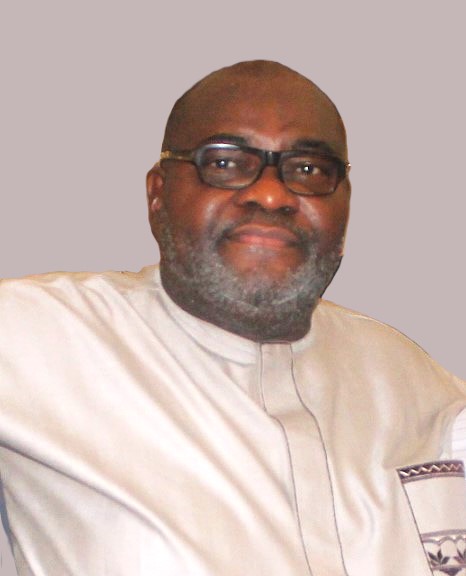
BY BOLAJI AFOLABI
Poring over countless title-ideas for this article, the above emerged from the blues. Further checks about the subject confirmed the title as fit and proper. Describing Tunde Olusunle as a “prodigious wordsmith” is no exaggeration. In every of his work, he comes across as one who has vocabulary virtuosity, and endowed with narrative mastery. He displays unimaginable linguistic dexterity which is intertwined with rhetorical flair, and imbued with creative vision. He carves the right words, and descriptive styles to paint beautiful scenery of complex and cumbersome situations. He crafts, engages, and suspends readers till the last words are happily soaked in. So, the title is both deliberate and intentional.
Dr. Tunde Olusunle, an Adjunct Professor of Creative Writing at the University of Abuja; which was recently re-named Yakubu Gowon University, is a man of many parts. He is a celebrated journalist; author; poet; communicator; and public speaker. Thus, he fits into all the fields where intellect, elucidation, and erudition coalesce. As a Columnist and Editor, he rose to the top of Journalism. In Literature, aside from having degrees, he has many published (and yet to be published) poems. He has written, co-written, edited, and co-edited over a dozen books; earning the Fellowship of the Association of Nigerian Authors, (FANA). In the last few years in academia, he is making exceptional accomplishments as a scholar, teacher, and researcher nurturing and mentoring a new generation of creative writers.
Sometime in the ’90s; during the Late General Sani Abacha regime, the writer went to the Saka Tinubu, Victoria Island, Lagos office of an elder brother; Ade-Ralph Olamife. After late lunch at the classy canteen within the precincts of the Nigeria Telecommunications Limited, (NITEL) offices, the host extended an invitation. He said, “I want you to join me later today to meet a friend coming from Ikeja.” About 7 pm, we (Olamife, two other friends, and the writer) drove into Bishop Oluwole Street in Victoria Island, Lagos. The building was the Kogi state Liaison Office at that time. Surprisingly, the august friend, who came with another person was already seated. After the exchange of pleasantries, the subject of this article was introduced by Olamife. Olusunle, who came with Alhaji Hakeem Bello; later Media Adviser to Babatunde Raji Fashola, (SAN), interacted freely with everyone. During the over two hours sit-out, Olusunle came across as a witty, lively, intelligent, and brilliant personality.
After this first meeting, the writer; through Olamife had subsequent interactions with Olusunle in Ikeja, Maryland, Ikoyi, and Victoria Island areas of Lagos. On every occasion, he exudes confidence and accessibility just as his humble and humane attributes come alive. After over a year of gap, largely due to the analogue communication state, and his relocation out of Lagos, Olamife broke the cheering news of Olusunle’s appointment as the Chief Press Secretary to the Kogi state Military Administrator; Col. Paul Omeruo. A few months later, the writer accompanied (as usual) Olamife; to visit Omeruo in Lokoja. By the way, both Olusunle and Olamife are mutual friends to the Administrator, fondly referred to as PUNO; initials of his names. During the two-week visit, Olusunle was the perfect host; he made every evening eventful and memorable. From discussions, many civil servants spoke glowingly about him. In and around the Lugard House; Administrator’s residence and office, as well as Ministries, Departments, and Agencies, (MDAs), his interpersonal relationships were eulogized. Succinctly, he could be described as a people’s man.
With the birth of democracy in May 1999, and the inauguration of Chief Olusegun Obasanjo as the President and Commander in Chief of Nigeria, the writer partially relocated to Abuja, hoping to explore opportunities in the new government. Watching the Nigerian Television Authority’s flagship news, the advert inviting people to the official launch of the new administration’s “Campaign for National Rebirth” sounded interesting. The writer made his way to the purposely-built Eagle Square venue of the event. As the programme progressed, the presence and importance of Olusunle was very evident. Events over, the writer swiftly moved from the stands down the platform to offer salutations to him. Pushed, shoved aside by over-zealous security operatives, it was a herculean task. At the point of giving up, an incident happened which diverted the attention of almost everyone. Leveraging on this, the writer made his way to the dais. Standing before Olusunle, he called the writer’s name, hugged, and exchanged pleasantries. Quickly, he said, “I’ll be out of Abuja for one week, meet me at Sheraton Hotels next week please.”
The writer’s visit to Sheraton Hotels marked the beginning of a relationship that has grown in leaps and bounds. Either at the Hotel’s Papillon Restaurant or the Poolside Bar, and Nicon Noga (now Transcorp) Hilton Hotel, the compassionate, empathetic, and accommodating attributes of Olusunle always come to the fore. They were unmistakable and unequivocal. During one of the numerous visits, he requested for the writer’s curriculum vitae; without saying what he wanted to do with it? It was discovered, early that he loves working behind the scenes. Beneficiaries of his advocacy, and benevolence only get to know when “food don done for eating.” One recalls on a visit to his 7th floor, Sheraton Hotels “temporary official residence” he beckoned on the writer to accompany him to somewhere. In a few minutes, we were in one of the suites at the Hilton Hotel, only to see Chief Onyema Ugochukwu, emeritus journalist, and public administrator walked in. With shock, suspense, and excitement written on one’s face, Olusunle introduced the writer saying, “Oga, this is one of our younger but silent supporters.”
A few months later, the import of that visit came to light. Through the persistent advocacy, and resilient prodding of Ugochukwu and Olusunle, President Obasanjo gave approval for major recruitments to strengthen the rebirth campaign, and public affairs management of the new government. So, the writer and other people benefitted from a forward-thinking proposal that was primarily targeted at media professionals who were part of the Obasanjo presidential campaign organization. Pastor Tumo Ojelabi, a retired Federal Director who was one of the beneficiaries declared that, “Oga, is a fastidious personality, a determined helper who can be positively stubborn, and dogged when pursuing a course that he has strong conviction about.” Continuing, Ojelabi, who was the official Photographer to Obasanjo during the presidential campaign said, “but for his resilience, courage, and never-quiver spirit; and Oga Ugochukwu, many of us who toiled during the campaigns would have been left dry.” For Mr. Taiwo Akinyemi, who was Obasanjo’s campaign Official Videographer, “Olusunle is a fighter; a dynamic fighter for other people. When he realized that politicians who did not contribute much to Baba’s electoral success were getting their loyalists into the new government, he fought relentlessly for us all. God used him to get me employed in the federal civil service, I remain eternally grateful.”
Olusunle is a pan-Nigerian, totally detribalized, and not given to ethnicity, religious segregation and similar stereotype. Described by close friends as diligent, dedicated, and devoted to friendship, Olusunle remains a restless and tireless quester for knowledge and new challenges. Given his multi-dimensional, and multi-tasking skills and proficiencies, he can excel in whatever profession, assignment, and position. Energized by his voracious search for new ideas, he is almost, always thinking out of the box. Very ingenious, creative, and imaginative, one recalls few initiatives that came from his fertile mind during the Obasanjo presidency. Persistent encouraging words about Nigeria’s sports which led to the inclusion of the “sports brief” to his schedules. Advocacy for the hosting of the Commonwealth Heads of Government Meeting, (CHOGM) at any of the nation’s resorts; which informed him leading a team of journalists, tourism experts, and bureaucrats to the Yankari Games Reserves in Bauchi. What about the National Media Tour, though initiated by him but hijacked by a few top government officials who at the end muddled the entire programme?
Corroborating, Mr. Vincent Oyefeso, a retired Federal Director, and another beneficiary of the Obasanjo appointments approval, said, “he is an illustrious Nigerian and a patriot per excellence, who bestrides many walks of life as an intellectual collossus, a humanist of no mean hue, and an advocate of the finest social ethos. At the realms of public communications, the academia, and public service, he exudes the best practices worthy of emulation by right-thinking compatriots.” For Mr. Ukadike Uwabor, a media communications consultant, “since I’ve known him, he has remained consistent with the core values of excellence, versatility, and intellect. He relates perfectly with different people no matter the age, religion, tribe, or social status. Little wonder his friends cut across different strata of the society. That the people of Umukabia autonomous community in Abia state conferred on him a chieftaincy title; which is outside his geographical, ethnic, and linguistic zone speaks volumes about his personality.” Olusunle by the way, has few other titles bestowed on him in different parts of the country.
Agreed, no human being is perfect but the writer has personal experiences about Olusunle that remains nostalgic. Indeed, the over two decades relationships have grown from one stage to the other. From boss to teacher, mentor, and motivator. He has played (and continues to play) different roles in one’s professional development, and career progression. Perhaps, he may not realize this; while working with him, Olusunle doesn’t attend meetings alone. The writer, Late Alhaji Wasiu Anjous, and (on few occasions) Akinyemi accompanied him to any meeting, particularly with MDAs. Another striking feature was that he introduced you as a “colleague.” With that, one’s stock, respect, and recognition increases. One of the fall-out of such remarkable style happened at the 2004 Olympics Games in Greece, when Late Mr. Solomon Matankari, Nigeria’s Chef de Mission, and Sports Ministry’s Permanent Secretary insisted on the participation of Anjous and the writer in high-level meetings.
Not persuaded by the hierarchical structure of the civil service, Olusunle places premium on availability, delivery, and consistency. Just a few months after being deployed to his office, the writer had a baptism of fire. Barely 48 hours after one of the regular presidential chats, Olusunle passed the recorded tape, and declared, “do transcribe and deliver in three days.” Sensing shock, and surprise, he encouraged, “you can do it, go at your pace.” On another occasion, a few days after commending the writer on a piece, “From Saw Dust To The Skies,” he said, “write a speech for Dr. Mrs. Kema Chikwe, the Aviation Minister, for a programme this Saturday to be held in Garki, Abuja.” Though tough but exciting, it marked my entry into the exclusive class of speech writers; till this moment. Sometime in 2023; after long hiatus from opinion writing, due to a new assignment at the National Assembly, the writer did a piece. Impressed, Olusunle called immediately, “BJ, I’ve just read your brilliant article. I encourage you to make this more regular, please. I’m available to offer any support where and when necessary.” Truly, he has kept faith to his promise in the over thirty articles written between December 2023 and now.
This is the man we are celebrating today, and always. Olusunle is an extremely organized personality, whose writings and interventions are laced with irrefutable data, educative instances, and inspiring suggestions. When occasions demands, you can’t help but applaud his depth of knowledge, information reservoir, deep vistas, and un-ending capacity. Oyefeso prays that, “the Lord grants him peace as he steps into the sixth floor. The Father of Lights will continually uphold and uplift him from Glory to Glory in Jesus Name.” Mr. Jacob Zwings, aide to Director-General, National Orientation Agency added that, “Oga Tunde, in his own way has impacted positively on the lives of people. On the occasion of his Diamond jubilee, I pray that God will perfect everything that concerns him and his family.” Akinyemi declared that, “just as he has been a blessing to other people’s children, God will bless him, his wife, and children.” Uwabor believes that, “Enyi Oha has become a reference point to many people. The good Lord will grant him more years in good health as he age gracefully with abundance of all-round blessings.” Ojelabi affirmed that, “Olusunle is who he is today; an accomplished man who stands tall among his peers because of his commitment towards extending helping hands to those who needs it.”
* BOLAJI AFOLABI, a Development Communications specialist was with the Office of Public Affairs, The Presidency, Abuja.
Opinion
PROFESSOR HUMPHREY NWOSU: THE UNSUNG HERO OF TRUE NIGERIAN DEMOCRACY
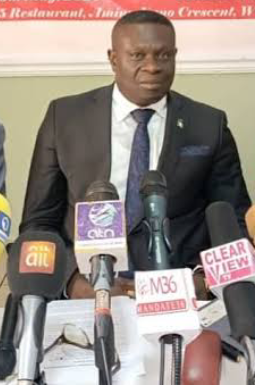
Written by Dr. Nwambu Gabriel,Director General, Centre for Credible Leadership and Citizens Awareness
Introduction
The journey to democratic governance in Nigeria has been fraught with challenges, conflicts, and untold sacrifices. Among the gallant figures who stood resilient in the face of adversity was Professor Humphrey Nwosu. As we mourn the loss of a remarkable leader and an indomitable champion of democracy, we reflect on his contributions and unwavering commitment to the electoral process, which laid a foundational path for Nigeria’s democratic practice.
A Visionary Electoral Leader
Professor Nwosu’s tenure as Chairman of Nigeria’s National Electoral Commission (NEC) from 1989 to 1993 marked a pivotal era in the nation’s electoral history. Unlike many of his contemporaries, Nwosu approached his responsibilities with an unwavering resolve to uphold the sanctity of the electoral process. He successfully organized several elections, including Local Government Chairmanship, Governorship, and State and National Assembly elections, which were lauded for their transparency and fairness. His most significant achievement came with the conduct of the June 12, 1993, presidential elections, widely regarded as one of the freest and fairest elections in Nigeria’s history.
Courageous Stand Against Adversity
In an environment characterized by military interference and political manipulation, Nwosu exemplified courage. He boldly overturned a court order issued on June 10, 1993, that sought to halt the presidential elections. Despite facing intense pressure from the military establishment led by Ibrahim Babangida (IBB), he remained resolute, emphasizing his commitment to ensuring that the elections were conducted as planned. His insistence on completing his mandate, even when his commission was dissolved midway through the electoral process, is a testament to his integrity and dedication.
His unyielding stance culminated in the announcement of results from 29 out of 30 states in the June 12 elections. Although General Ibrahim Babangida annulled the elections before Nwosu could declare the final results, his steadfastness demonstrated his belief in the democratic process and the necessity of honoring the voice of the Nigerian electorate.
Championing Democracy Through Documentation
Professor Nwosu did not allow the annulment of the June 12 elections to silence his voice. In his book, *Laying the Foundation of Nigeria’s Democracy: My Account of June 12, 1993 Presidential Election and Its Annulment*, he chronicled the events leading to the election and its aftermath. By publishing the results of the June 12 elections, he presented irrefutable evidence of MKO Abiola’s victory, reinforcing the notion that the people’s will should prevail over political machinations. This documentation serves as a historical account of a significant moment in Nigeria’s struggle for democracy and a rallying cry for future generations.
Legacy of Integrity
As we reflect on Professor Nwosu’s life and contributions, it is essential to recognize his legacy of integrity, bravery, and unwavering commitment to democratic principles. He stood as a beacon of hope during a tumultuous period in Nigerian history, proving that one individual’s resolute stand could indeed lead to monumental change. His story serves as an inspiration to current and future leaders to prioritize the will of the people over personal or political gain.
Conclusion
The passing of Professor Humphrey Nwosu is not just a loss to his family and friends but to a nation that desperately needs champions of democracy. His actions during the critical moments of June 12, 1993, solidified his place in history as a true man of democracy. As we commemorate his life, we are reminded that democracy thrives through the courage and integrity of individuals like Professor Nwosu—those who are willing to stand firm against oppression and ensure that the voice of the people is heard.
May his soul rest in peace, and may his legacy continue to inspire generations to uphold the values of democracy, transparency, and justice in Nigeria.
Opinion
Hon. (Dr.) Saheed Mosadoluwa: A Beacon of Visionary Leadership
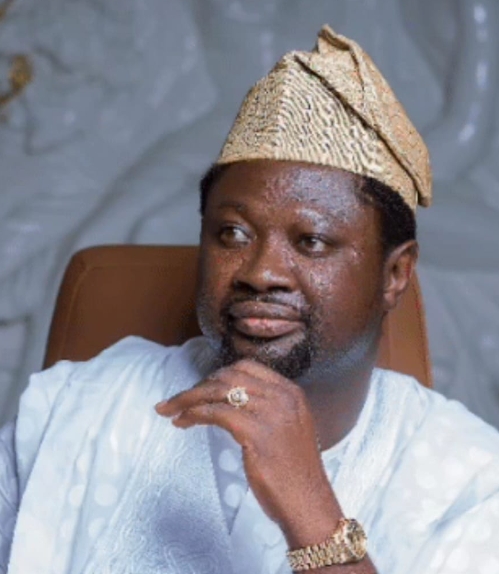
In an era where effective leadership is more crucial than ever, Hon. (Dr.) Saheed Mosadoluwa stands out as a beacon of visionary leadership. His approach transcends traditional governance, embodying a blend of innovation, empathy, and strategic foresight that inspires those around him and fosters community growth.
Pioneering Change Through Vision
Dr. Mosadoluwa’s leadership is characterized by a clear, forward-thinking vision. His ability to foresee challenges and opportunities allows him to craft policies that not only address current issues but also lay the groundwork for a prosperous future. He understands that visionary leadership is not just about having a great idea; it is about mobilizing resources, people, and initiatives to turn ideas into reality.
Empathy and Inclusivity at the Core
At the heart of his leadership philosophy is a deep sense of empathy. Dr. Mosadoluwa believes that true leadership involves listening to the voices of the people and prioritizing their needs. He fosters an inclusive environment where diverse perspectives are valued, ensuring that every stakeholder feels heard and respected. This commitment to inclusivity not only strengthens community ties but also enhances the effectiveness of governance.
Innovative Solutions for Sustainable Development
Dr. Mosadoluwa recognizes the complexities of today’s challenges and approaches them with innovative, sustainable solutions. He champions initiatives that leverage technology, education, and sustainable practices to drive development. His focus on smart, sustainable urban planning and community-driven projects demonstrates his commitment to fostering resilient communities that can thrive in the face of adversity.
Empowering Future Leaders
As a visionary leader, Dr. Mosadoluwa is dedicated to empowerment. He actively mentors the next generation of leaders, believing that true leadership involves creating opportunities for others to grow. Through workshops, seminars, and community engagement initiatives, he inspires young minds to develop their leadership potential and become active participants in shaping their futures.
Commitment to Transparency and Accountability
Honesty and integrity are cornerstones of Dr. Mosadoluwa’s leadership. He believes that transparent governance builds trust within the community. By promoting open communication and accountability, he sets a standard for ethical leadership, ensuring that decisions are made in the best interest of the community.
Conclusion
Hon. (Dr.) Saheed Mosadoluwa is more than just a leader—he is a visionary. Through his innovative strategies, empathetic approach, and commitment to inclusivity, he is redefining the true definition of what Leadership. As he continues to inspire and enact positive change, Dr. Mosadoluwa remains dedicated to building a better future for all, proving that with visionary leadership, anything is possible.
-

 Business23 hours ago
Business23 hours agoBank stops transfer fees on online transactions
-

 News10 hours ago
News10 hours agoRivers APC demands Fubara’s probe over ex-HoS allegations
-

 Economy2 hours ago
Economy2 hours agoSEE Black Market Dollar To Naira Exchange Rate Today 3rd April 2025
-
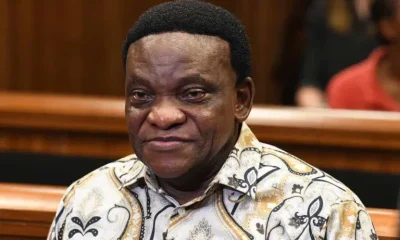
 News23 hours ago
News23 hours agoS/African Court Acquits Nigerian Pastor Of Rape, 31 Other Charges
-

 Economy11 hours ago
Economy11 hours agoNaira rebounces against the dollar in parallel market
-

 News3 hours ago
News3 hours agoNatasha: Kogi PDP hammers Ododo, reiterates unfeigned support for her
-

 News1 hour ago
News1 hour agoJust in: INEC dumps recall petition against Sen Natasha
-

 News10 hours ago
News10 hours agoAir Algerie Inaugural Flight to Abuja Will Strengthen Nigeria-Algeria Ties – FG




